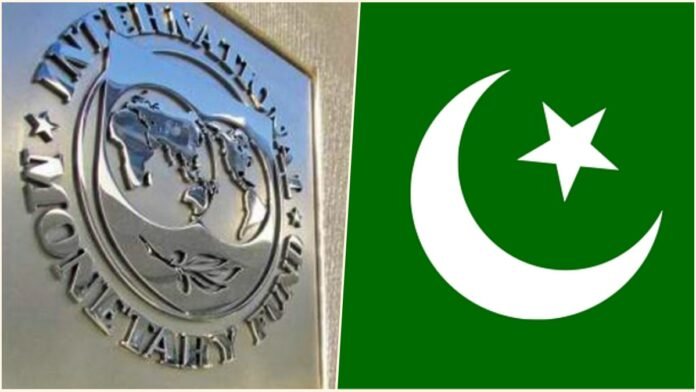
Key Points
- IMF imposes 11 new conditions on Pakistan for next bailout tranche, raising total to 50.
- Approval of a record Rs 17.6 trillion budget and major reforms in energy, tax, and governance required.
- IMF warns that escalating India-Pakistan tensions after Operation Sindoor threaten Pakistan’s fiscal and reform goals.
- Pakistan’s defense budget set to rise sharply amid regional tensions.
- Market impact remains limited, but IMF flags ongoing risks to stability and reform progress.
New Delhi: The International Monetary Fund (IMF) has dramatically tightened its bailout terms for Pakistan, imposing 11 new conditions that must be met before the release of the next tranche of financial assistance. This brings the total number of IMF conditions for Pakistan’s bailout program to a staggering 50, reflecting mounting concern over the country’s economic trajectory and regional stability.
Among the most critical requirements, Pakistan must secure parliamentary approval for a record Rs 17.6 trillion federal budget for 2025-26 by June, in line with IMF targets. The new budget mandates Rs 1.07 trillion for development spending, while also demanding stricter fiscal discipline and enhanced revenue collection.
Major Reforms: Energy, Taxation, and Governance Overhaul
The IMF’s new benchmarks go far beyond budget approval. Key reforms include:
- Energy Sector: Pakistan must implement higher debt servicing surcharges on electricity bills, issue annual notifications to rebase electricity tariffs by July, and introduce semi-annual gas tariff adjustments to ensure cost recovery.
- Taxation: All four provinces are required to pass new agricultural income tax laws, with improved taxpayer identification and compliance systems by June 2025.
- Governance: The government must publish a comprehensive governance reform strategy, addressing procurement, state-owned enterprises, and anti-corruption measures.
- Financial Sector: A long-term post-2027 strategy for financial sector reforms must be prepared and published.
- Trade Policy: Pakistan is required to submit legislation to Parliament by July to lift restrictions on the import of used cars, initially allowing vehicles up to five years old.
Defense Spending Surges Amid Operation Sindoor Fallout
The IMF report highlights a significant increase in Pakistan’s defense budget, projecting an allocation of Rs 2.414 trillion for 2025-26-a 12% jump over the previous year. However, following this month’s military escalation with India, the government signaled an even higher outlay exceeding Rs 2.5 trillion, or an 18% increase, reflecting the cost of heightened regional tensions.
India-Pakistan Tensions: A Risk to Economic Stability
The IMF has explicitly warned that the recent surge in India-Pakistan tensions-sparked by the Pahalgam terror attack, India’s retaliatory Operation Sindoor, and subsequent cross-border strikes-poses a serious risk to Pakistan’s fiscal, external, and reform objectives. While financial markets have so far remained relatively stable, the IMF cautions that sustained or worsening hostilities could derail Pakistan’s economic recovery and reform agenda.
“Rising tensions between India and Pakistan, if sustained or deteriorate further, could heighten risks to the fiscal, external and reform goals of the programme,” the IMF staff-level report stated.
Ceasefire Holds, But Uncertainty Remains
After four days of intense military exchanges in early May, both countries agreed to a ceasefire on May 10, following hotline talks between their Directors General of Military Operations. The situation remains fragile, with the IMF and international observers closely monitoring for any renewed escalation that could further complicate Pakistan’s economic recovery.
Summary Table: Key IMF Conditions and Context
| Area | New IMF Condition/Requirement | Deadline/Status |
|---|---|---|
| Federal Budget | Rs 17.6 trillion budget, parliamentary approval | By June 2025 |
| Defense Spending | Rs 2.414 trillion (IMF), >Rs 2.5 trillion (Govt) | 12–18% increase, FY 2025-26 |
| Energy Sector | Higher surcharges, tariff rebasing, gas adjustment | July 2025 (electricity), Feb 2026 (gas) |
| Tax Reform | New agricultural income tax in all provinces | By June 2025 |
| Trade Policy | Remove used car import restrictions (up to 5 years old) | By July 2025 |
| Governance | Publish reform strategy based on IMF assessment | 2025 |
| Financial Sector | Post-2027 reform strategy | 2025 |
| Geopolitical Risk | Ceasefire after Operation Sindoor, IMF warns of risk | Ongoing |
The IMF’s latest demands underscore the precarious balance Pakistan must maintain between meeting urgent economic reforms and navigating a volatile security environment with India. The coming weeks will be critical as Islamabad races to fulfill these conditions and stabilize its economy under intense international scrutiny.





















































